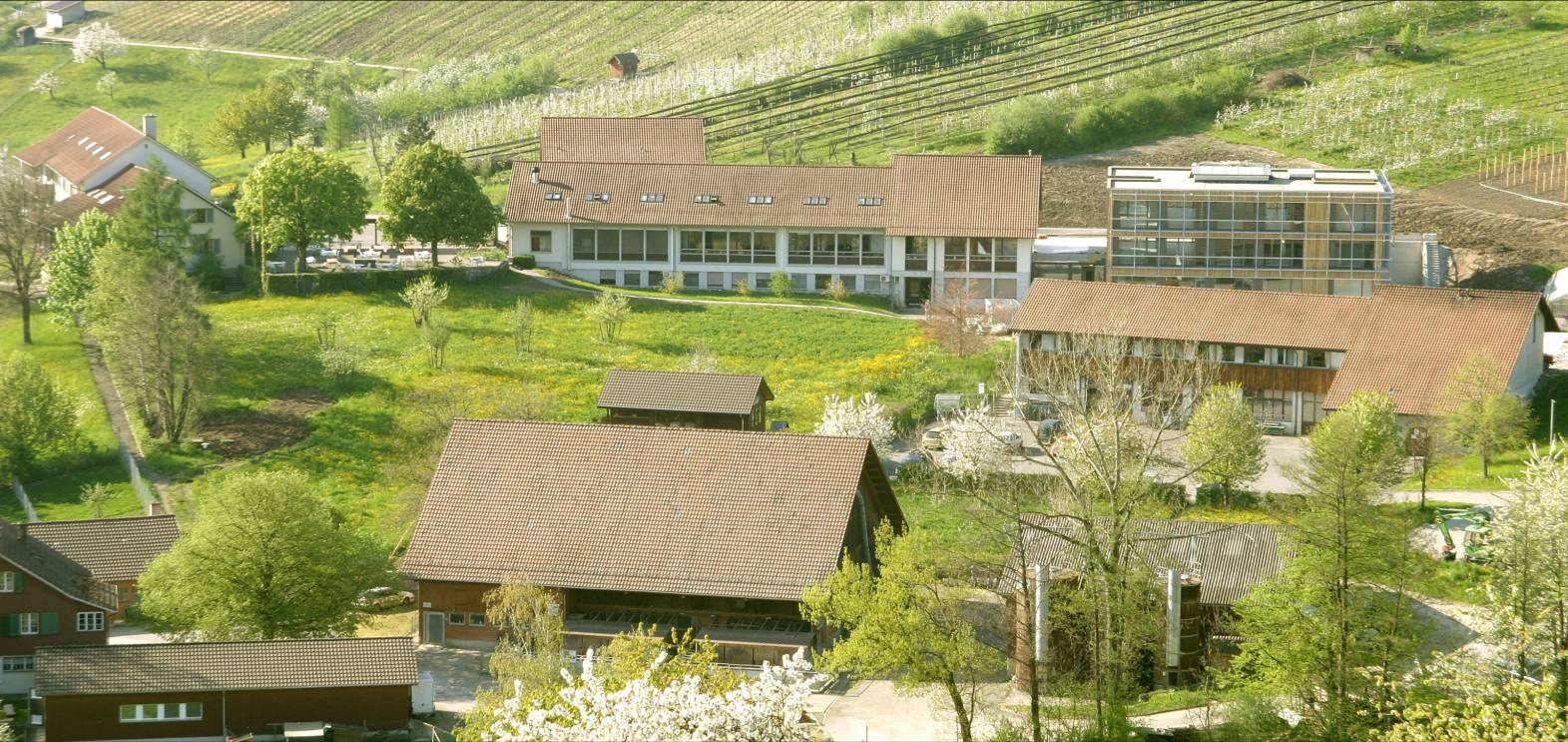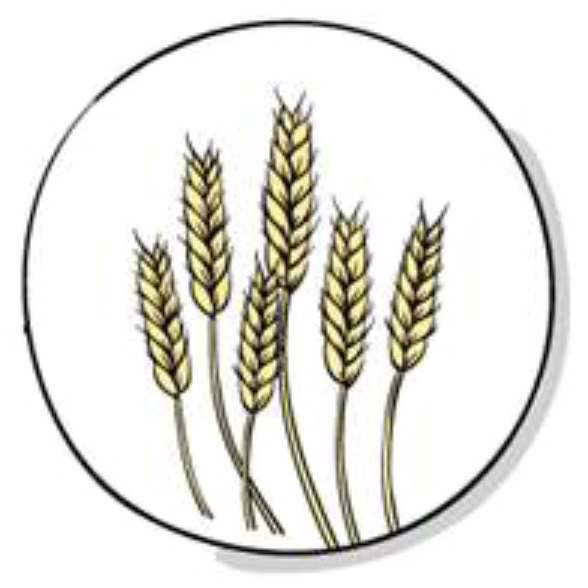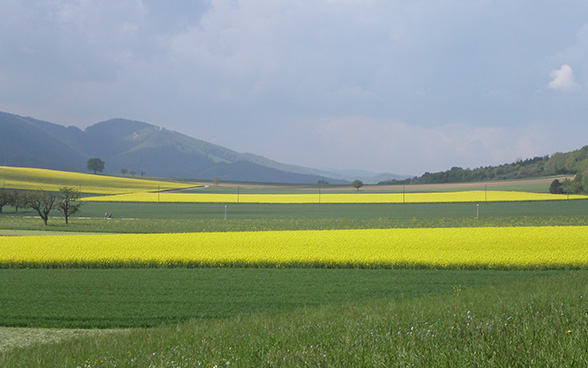FiBL is an independent, non-profit, research institute with the aim of advancing cutting-edge science in the field of organic agriculture worldwide. FiBL’s research team works together with farmers in Europe, Asia, Latin America and Africa to develop innovative and cost-effective solutions to boost agricultural productivity. The close links between different fields of research and the rapid transfer of knowledge from research to advisory work and agricultural practice are FiBL’s strengths.

© FiBL (T. Alfödi)
Organic Farming and Climate Change
Organic farming has a number of objectives, such as to avoid damage to the environment, to promote biodiversity, to manage attractive landscapes, to keep livestock in a manner that fulfills their welfare requirements, and to produce good food. It also provides a key to solving the problem of climate change: organic farming is an alternative that uses resources sparingly, is climate-friendly, and offers significant scope for climate change adaptation.
To which extent organic farming reduces greenhouse gas emissions and enhances CO2 sequestration in the soil? Which practices increase the effectiveness of organic farming for climate change adaption? How can we recognise and support the potential of organic farming for climate change adaptation? How can biodiversity conservation be considered in adaptation strategies? These questions determine the FiBL activities within the priority theme organic farming and climate change.
Priority themes with contributions from FiBL
Sector
Last modification 24.11.2020








